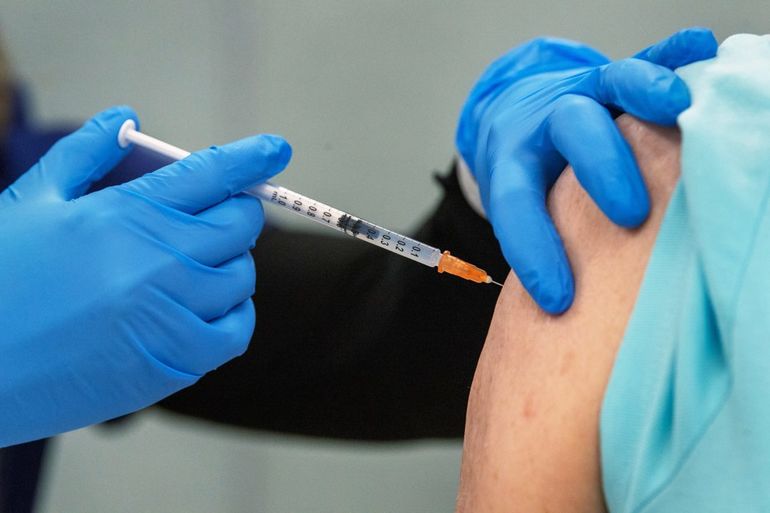
Processing Your Payment
Please do not leave this page until complete. This can take a few moments.
-
News
-
Editions
-
- Lists
-
Viewpoints
-
HBJ Events
-
Event Info
- 2024 Economic Outlook Webinar Presented by: NBT Bank
- Best Places to Work in Connecticut 2024
- Top 25 Women In Business Awards 2024
- Connecticut's Family Business Awards 2024
- What's Your Story? A Small Business Giveaway 2024 Presented By: Torrington Savings Bank
- 40 Under Forty Awards 2024
- C-Suite and Lifetime Achievement Awards 2024
- Connecticut's Health Care Heroes Awards 2024
-
-
Business Calendar
-
Custom Content
- News
-
Editions
View Digital Editions
Biweekly Issues
- April 29, 2024
- April 15, 2024
- April 1, 2024
- March 18, 2024
- March 4, 2024
- February 19, 2024
- February 5, 2024
- January 22, 2024
- January 8, 2024
- + More
Special Editions
- Lists
- Viewpoints
-
HBJ Events
Event Info
- View all Events
- 2024 Economic Outlook Webinar Presented by: NBT Bank
- Best Places to Work in Connecticut 2024
- Top 25 Women In Business Awards 2024
- Connecticut's Family Business Awards 2024
- What's Your Story? A Small Business Giveaway 2024 Presented By: Torrington Savings Bank
- 40 Under Forty Awards 2024
- C-Suite and Lifetime Achievement Awards 2024
- Connecticut's Health Care Heroes Awards 2024
Award Honorees
- Business Calendar
- Custom Content
Vaccine mandates may be on the horizon
 Cloe Poisson | CT Mirror
A first dose of the Moderna COVID-19 vaccine is given to a senior citizen at a clinic at St. Bernard Church in Vernon.
Cloe Poisson | CT Mirror
A first dose of the Moderna COVID-19 vaccine is given to a senior citizen at a clinic at St. Bernard Church in Vernon.
As employers call their workers back to offices and work sites, labor attorneys are preparing to litigate cases sussing out employee rights to medical privacy and employers’ responsibility to provide a safe workplace.
The U.S. Equal Employment Opportunity Commission (EEOC), which enforces workplace anti-discrimination laws, ruled employers can mandate their workers to get a COVID-19 vaccine.
But Abby Warren, a labor and employment attorney at Hartford law firm Robinson+Cole, said she’s not seeing many businesses requiring vaccination.
Right now most employer clients are incentivizing vaccination with things like paid time off, and raffle prizes like Amazon gift certificates, Warren said. But she also thinks tactics will change in the wake of Connecticut lifting most of its COVID-19 restrictions.
“

I’m not seeing [mandates] yet, but I think it’s on the horizon,” Warren said. “And when employers move to that system and it results in loss of employment for people who don’t get vaccinated, that — I think — is going to be the next big area [of legal disputes].”
The law places a heavy burden on employers to maintain a safe work environment, especially when they require employees to be on-site, Warren said.
On the other hand, the Americans with Disabilities Act (ADA) dictates employers must work to find reasonable accommodations for workers who cannot receive vaccinations due to medical conditions or religious reasons in some cases.
Finding reasonable accommodations for unvaccinated workers protected under ADA could include requiring them to wear masks, placing them in an isolated workspace or allowing them to work remotely, Warren said. However, this also raises questions about an employee’s right to privacy.
“Moving to a system where only those who are not vaccinated wear masks, that’s going to be, I think, hugely problematic,” Warren said. “[Wearing a mask would] show that people may have a medical condition, may have a pregnancy people didn’t know about.”
Daniel Schwartz, a partner in the employer defense group at Hartford law firm Shipman & Goodwin, also thinks an increasing number of employers will start requiring vaccination for their workers.
Industries like education and health care are currently leading the way in mandating vaccines, and employers Schwartz advises are starting to see mandatory vaccination as a good way to get workers back into offices faster.
Schwartz said he thinks we’ll begin seeing a trend of vaccine mandates at white-collar workplaces, and he’s not too worried about the legal implications.

“To be honest, I think the liability concerns are a bit overblown — vaccine status is not a protected category in Connecticut,” Schwartz said. “Employers have always been able to manage their workplace and keep their employees safe, and checking vaccine status is part and parcel of that.”
Additionally, while ADA requires employers to offer reasonable accommodations to people with certain medical conditions or religious beliefs when possible, the EEOC ruling on COVID vaccine mandates means they can dismiss unvaccinated employees if compromise isn’t possible.
And employers don’t legally have to make any accommodations for unvaccinated workers whose hesitancy is based on personal beliefs not protected by ADA.
“The employers have to engage in the discussions with employees, but they don’t have to agree to allow unvaccinated employees into the office without protections,” Schwartz said.
Related Content

2022 Giving Guide
This special edition informs and connects businesses with nonprofit organizations that are aligned with what they care about. Each nonprofit profile provides a crisp snapshot of the organization’s mission, goals, area of service, giving and volunteer opportunities and board leadership.
Learn more
Subscribe
Hartford Business Journal provides the top coverage of news, trends, data, politics and personalities of the area’s business community. Get the news and information you need from the award-winning writers at HBJ. Don’t miss out - subscribe today.
Subscribe
2024 Book of Lists
Delivering Vital Marketplace Content and Context to Senior Decision Makers Throughout Greater Hartford and the State ... All Year Long!
Read Here-
2022 Giving Guide
This special edition informs and connects businesses with nonprofit organizations that are aligned with what they care about. Each nonprofit profile provides a crisp snapshot of the organization’s mission, goals, area of service, giving and volunteer opportunities and board leadership.
-
Subscribe
Hartford Business Journal provides the top coverage of news, trends, data, politics and personalities of the area’s business community. Get the news and information you need from the award-winning writers at HBJ. Don’t miss out - subscribe today.
-
2024 Book of Lists
Delivering Vital Marketplace Content and Context to Senior Decision Makers Throughout Greater Hartford and the State ... All Year Long!
ABOUT
ADVERTISE
NEW ENGLAND BUSINESS MEDIA SITES
No articles left
Get access now
In order to use this feature, we need some information from you. You can also login or register for a free account.
By clicking submit you are agreeing to our cookie usage and Privacy Policy
Already have an account? Login
Already have an account? Login
Want to create an account? Register
Get access now
In order to use this feature, we need some information from you. You can also login or register for a free account.
By clicking submit you are agreeing to our cookie usage and Privacy Policy
Already have an account? Login
Already have an account? Login
Want to create an account? Register










0 Comments